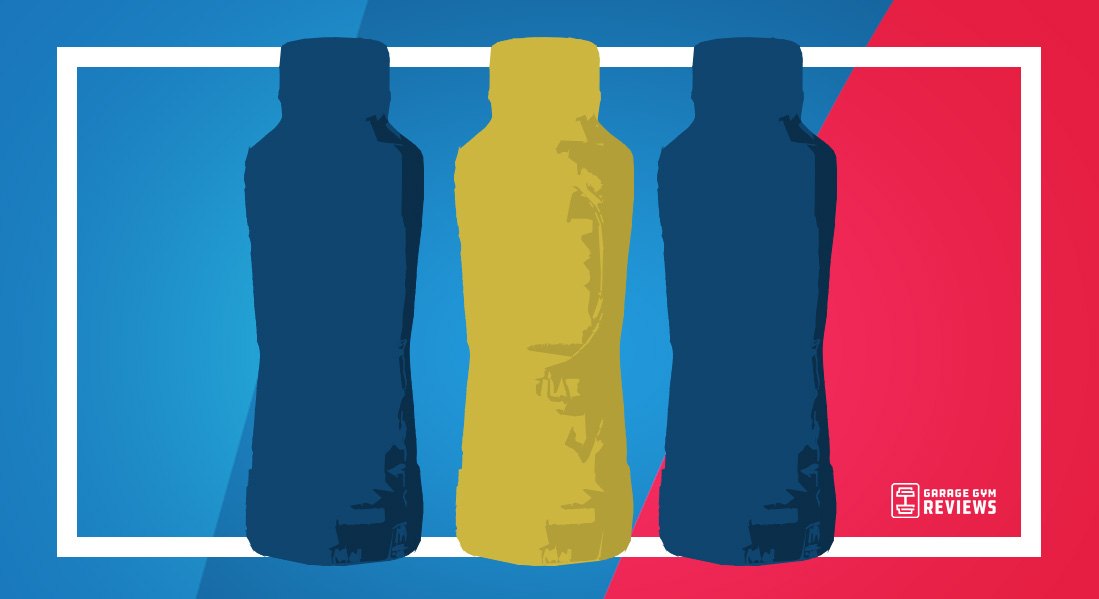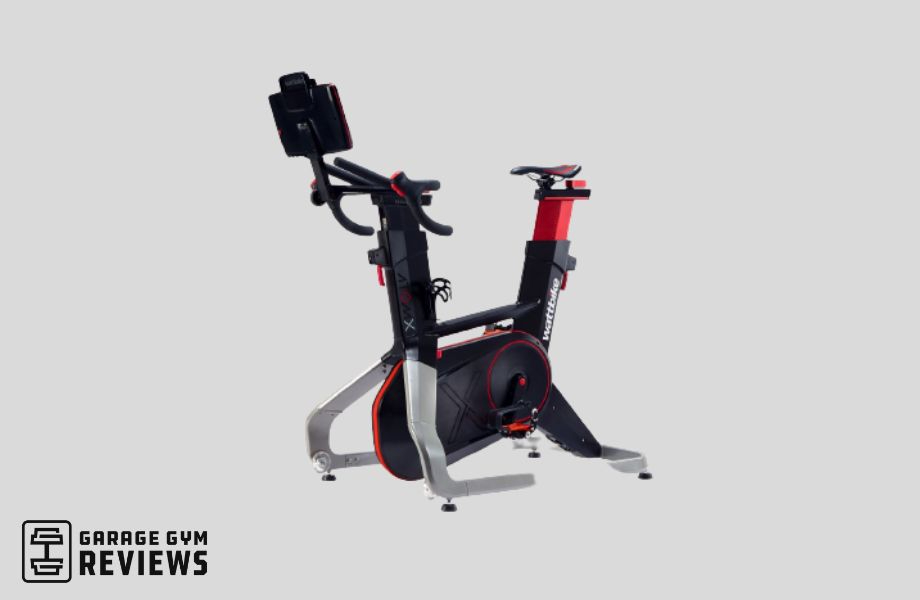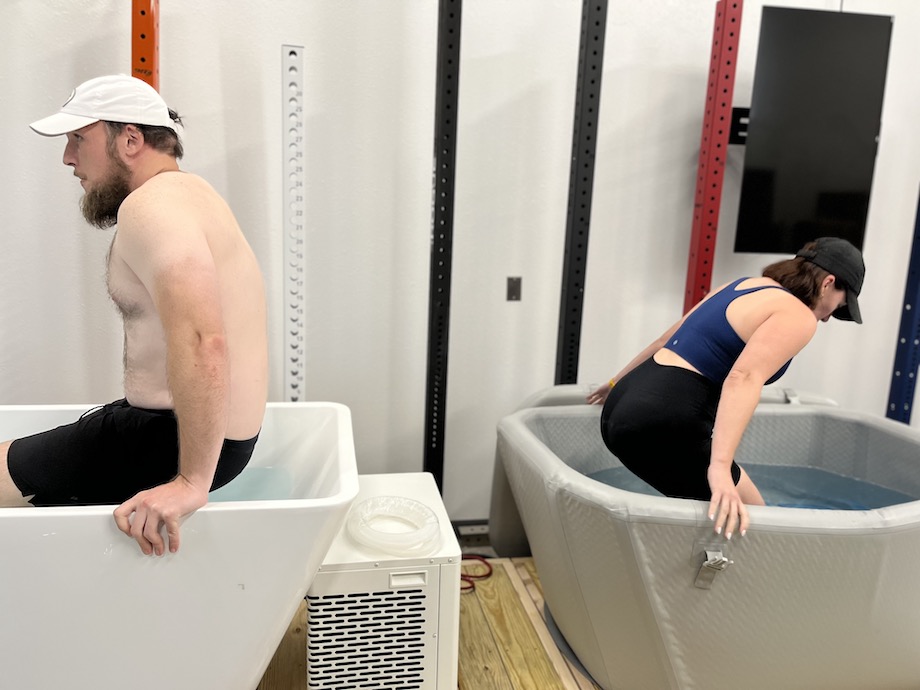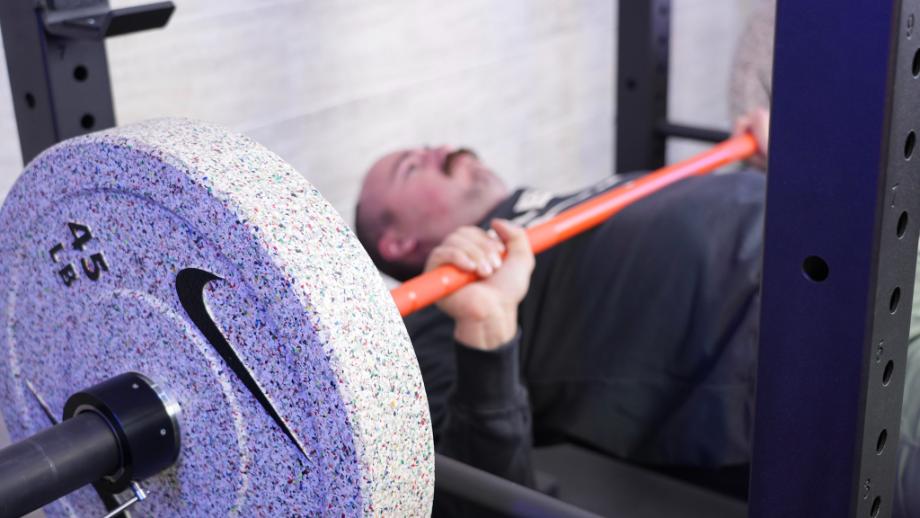We all know that protein is absolutely essential for meeting our fitness goals, but knowing how protein shakes fit into the equation can be a little confusing. Are protein shakes helpful? How many protein shakes a day should you consume?
You may even worry about getting too much protein from shakes and whether this can cause health problems. Is there any truth to this concern?
We get it—you need helpful, straight-to-the-point information to help you determine how protein shakes best fit into your routine (and whether you actually need them at all). We’ll discuss the benefits of protein shakes and the optimal number to drink so that you can best support your health and fitness goals.

Medical disclaimer: This article is intended for educational and informational purposes only. It is not intended as a substitute for medical advice. For health advice, contact a licensed healthcare provider.
What Are the Benefits of Protein Shakes?
Based on the number of people who religiously drink protein shakes, you’d hope that they would actually be effective. Well, it turns out that these people are on to something. Protein consumption in the form of protein shakes can provide real benefits for health and fitness as long as they’re used appropriately.
We’ll discuss the evidence-backed benefits of protein shakes below.
They Can Help You Meet Your Protein Goals
While most people can get enough protein from food, people who are very physically active or who have specific strength or body composition goals have higher protein needs than the average person.
RELATED: High-Protein Foods
Athletes, bodybuilders, powerlifters, and people looking to lose weight are all examples of people who can benefit from a higher protein diet. Protein shakes provide a large amount of protein without much fat or carbohydrates, so they can help you meet your protein goals without overshooting your total calories for the day.
They’re Convenient
While many other proteins require some level of preparation or cooking, protein shakes are a quick and easy way to add more protein to your diet, requiring only a quick mix in a shaker bottle.
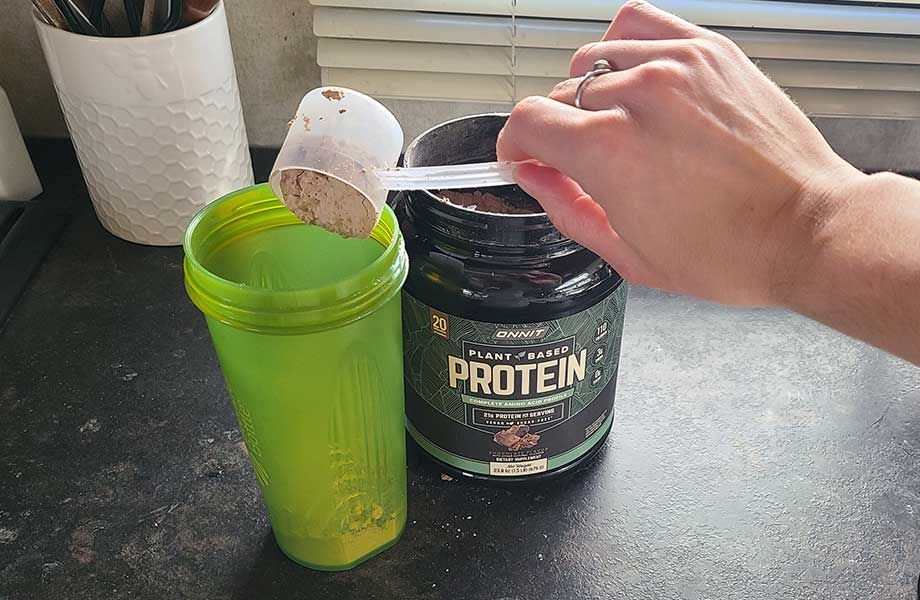
Pre-bottled protein shakes offer the most convenience for busy schedules and can travel anywhere.
They Can Help Build Muscle and Strength
Protein is essential for building strength and muscle mass, with the American College of Sports Medicine1 recommending a range of 1.2 to 1.7 grams of protein per kilogram of body weight to most effectively build muscle.
RELATED: Best Protein Powder for Muscle Gain
During resistance training, muscle is put under enough stress to cause microscopic tears in the muscle fibers. To repair these microtears, stimulate muscle protein synthesis, and promote gains in muscle size and strength, the body needs essential amino acids provided by protein-rich foods and beverages.
The International Society of Sports Nutrition2 recommends getting 20 to 40 grams of protein every three to four hours for muscle growth. Most protein powders provide between 20 to 25 grams of protein, so mixing them with milk or a higher-protein non-dairy milk like soy milk should provide you with the optimal amount. Whey protein and certain plant-based proteins like soy or pea protein are all effective for building muscle.
They Can Help Preserve Muscle During Weight Loss
An undesirable side effect of losing weight is the accompanying loss of lean muscle. During weight loss, the body will burn both fat and lean body mass for energy. The loss of too much muscle can result in a slower metabolic rate, so we want to prevent this as much as possible.
RELATED: Best Protein Powder for Weight Loss
The good news is that a high protein diet combined with a resistance training program and a calorie deficit can signal the body to burn more fat than muscle, preserving lean body mass and keeping your metabolic rate up. Protein supplements like shakes can help provide adequate amounts of amino acids without too much of the other macronutrients.
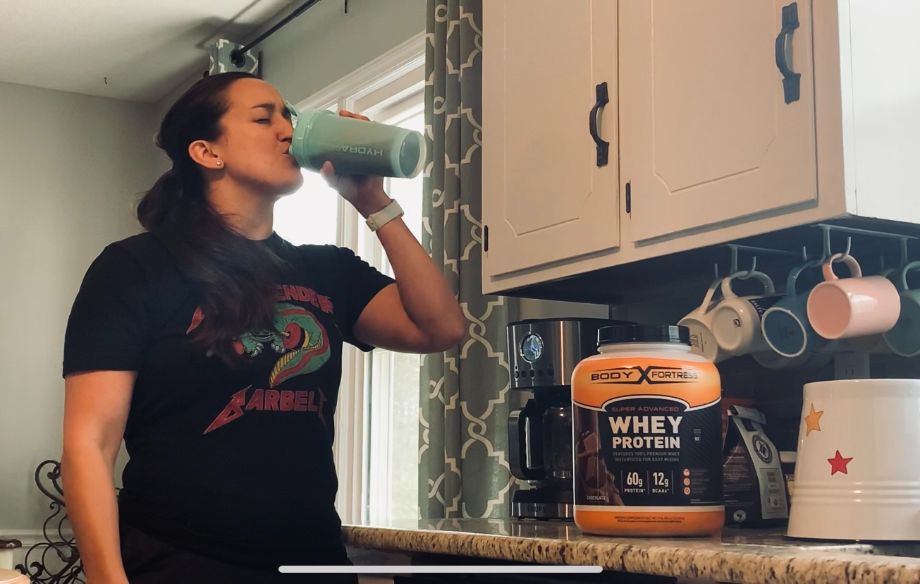
The key here is resistance training, which provides the body with the required stimulus for muscle repair and growth. Extra dietary protein without strength training may help with weight loss in terms of its ability to increase satiety after meals and slightly increase your metabolic rate due to the thermic effect of food, but won’t be as effective for preserving muscle during a calorie deficit.
RELATED: How Much Protein Should I Eat to Lose Weight?
They Can Help You Recover After a Workout
According to the International Society of Sports Nutrition2, amino acids are required during the recovery process to repair muscle and build it up stronger than it was before. Protein shakes are a great source of these amino acids.
Protein isn’t the only factor for post-workout recovery, however. Getting enough sleep, eating a balanced diet, prioritizing rest days, and avoiding overtraining are all important aspects of the recovery process.
How Much Protein Is In a Shake?
A protein shake made with one serving of protein powder mixed with water will provide around 20 to 25 grams of protein. If you use a cup of milk or soy milk, this will add 7 to 8 grams of protein for a total of about 27 to 33 grams per shake.
Bottled protein drinks found at the grocery store can vary widely in the amount of protein they offer, but most brands have between 16 to 30 grams.
The bottled shakes we’re talking about here are considered more of a protein supplement rather than a meal replacement. Meal replacement shakes tend to have more carbs, fat, and fiber with a nutrition profile closer to that of an actual meal than the type of protein shake discussed in this article.
How Many Protein Shakes Should I Consume a Day?
The number of protein shakes you should drink every day will depend on your total protein needs and your daily protein intake from food. If you can meet your daily protein requirement through meals and snacks alone, extra protein from a shake may not provide you with much benefit.
For most physically active people with high protein requirements, 1-2 protein shakes a day should be enough to support your fitness goals when combined with a balanced, nutrient-dense diet that includes food sources of high-quality protein.
Keep in mind that protein shakes are dietary supplements. As such, they’re meant to be a helpful addition to a balanced eating plan, not a replacement for food.
RELATED: Best Time to Drink a Protein Shake
Is It Bad to Get Too Much Protein?
A common concern about high-protein diets and consuming too many protein supplements is that they can overwork and damage the kidneys, potentially leading to the development of chronic kidney disease (CKD).
At first glance, this concern makes sense. The kidneys are responsible for filtering the byproducts of protein metabolism out of your blood for removal from the body through urine. This means that the more protein you eat, the more the kidneys have to work to filter your blood.
According to a November 2018 meta-analysis published in the Journal of Nutrition3, however, protein powder-lovers can likely rest easy. In this paper, researchers analyzed 28 studies with 1,358 total participants and compared high protein diets providing at least 1.5 grams of protein per kilogram of body weight, at least 100 grams of protein per day, or at least 20% of total calories from protein to lower protein diets.
They found that when compared to normal- or low-protein diets, high-protein diets do not negatively impact kidney function in healthy people.
What about even higher protein intakes of up to 3 grams per kilogram? These are likely safe as well, as a 2016 randomized controlled trial in the Journal of Nutrition and Metabolism4 found no harmful changes in blood lipids, kidney function, or liver function when participants consumed 2.5 to 3.3 grams of protein per kilogram body weight every day for an entire year.
Keep in mind that these results were in healthy people not at risk for CKD. While there’s no evidence high protein diets cause CKD, patients with CKD may need to avoid eating a very high protein diet and should consult a registered dietitian nutritionist for help determining their protein needs.
Kidney function aside, one problem that can arise with relying too much on protein shakes is that it can crowd out other nutrient-dense foods from the diet. Fruits, vegetables, and whole grains provide gut-healthy fiber, anti-inflammatory phytonutrients, and complex carbohydrates needed for optimal health, so you don’t want to become obsessed with protein at the expense of a balanced diet.
How Many Protein Shakes a Day: Final Thoughts
When deciding how many protein shakes to drink, think about how much total protein you need each day, your fitness goals, and how much protein you already get from meals and snacks. If you’re already getting enough protein from food, you may not even need to worry about drinking protein shakes.
If your goal is to build muscle mass or strength or to lose weight and you find it difficult to get adequate protein from food alone, drinking 1 to 2 protein shakes a day should be enough to support your fitness goals.
How Many Protein Shakes a Day: Q&A
Can you drink 2 protein shakes a day?
Drinking two protein shakes a day should be safe for most people. There are no negative effects on the kidneys with high-protein diets providing up to 3.3 grams of protein per day in healthy people without renal disease.
One or two protein shakes a day should be enough to help you meet your protein goals without taking the place of food in a healthy diet.
How many protein shakes a day for muscle gain?
To gain muscle, you’ll need to get enough total protein each day. This can be from food alone or from a combination of food and protein shakes. Drinking one or two protein shakes a day (in addition to balanced meals) is usually enough for most people to build muscle without displacing whole foods from their diet.
Will I lose weight if I drink 3 protein shakes a day?
It’s possible that you can lose weight while drinking three protein shakes a day, but it will depend on your overall calorie intake and energy expenditure.
Protein shakes aren’t a magic bullet for losing weight—being in an energy deficit is still required, where you burn more calories than you take in. That said, protein shakes can be helpful for weight loss because higher protein diets help the body burn more calories than diets lower in protein.
These statements have not been evaluated by the Food and Drug Administration. This product is not intended to diagnose, treat, cure, or prevent any diseases.
References
- American College of Sports Medicine. Protein Intake for Optimal Muscle Maintenance. https://www.acsm.org/docs/default-source/files-for-resource-library/protein-intake-for-optimal-muscle-maintenance.pdf. Accessed May 23, 2023.
- Kerksick CM, Arent S, Schoenfeld BJ, Stout JR, Campbell B, Wilborn CD, Taylor L, Kalman D, Smith-Ryan AE, Kreider RB, Willoughby D, Arciero PJ, VanDusseldorp TA, Ormsbee MJ, Wildman R, Greenwood M, Ziegenfuss TN, Aragon AA, Antonio J. International society of sports nutrition position stand: nutrient timing. J Int Soc Sports Nutr. 2017 Aug 29;14:33. doi: 10.1186/s12970-017-0189-4. PMID: 28919842; PMCID: PMC5596471.
- Devries MC, Sithamparapillai A, Brimble KS, Banfield L, Morton RW, Phillips SM. Changes in Kidney Function Do Not Differ between Healthy Adults Consuming Higher- Compared with Lower- or Normal-Protein Diets: A Systematic Review and Meta-Analysis. J Nutr. 2018 Nov 1;148(11):1760-1775. doi: 10.1093/jn/nxy197. PMID: 30383278; PMCID: PMC6236074.
- Antonio J, Ellerbroek A, Silver T, Vargas L, Tamayo A, Buehn R, Peacock CA. A High Protein Diet Has No Harmful Effects: A One-Year Crossover Study in Resistance-Trained Males. J Nutr Metab. 2016;2016:9104792. doi: 10.1155/2016/9104792. Epub 2016 Oct 11. PMID: 27807480; PMCID: PMC5078648.


